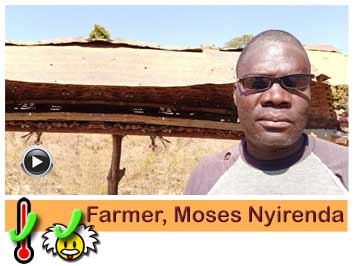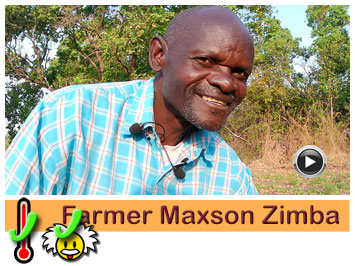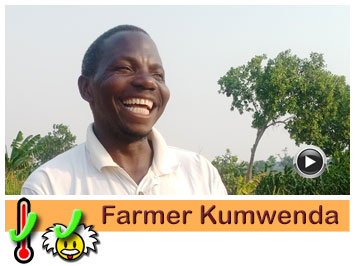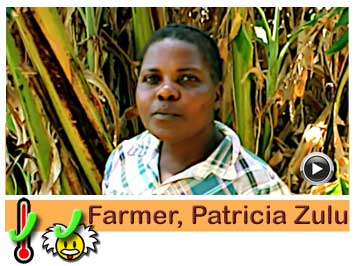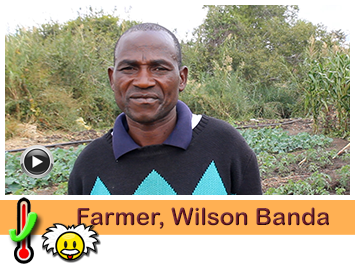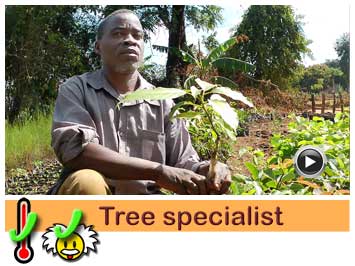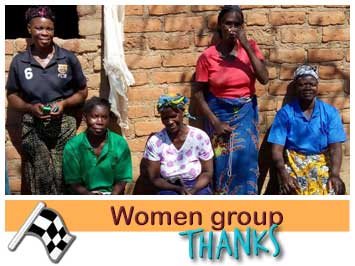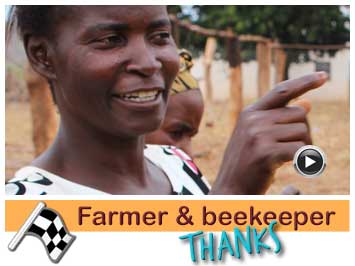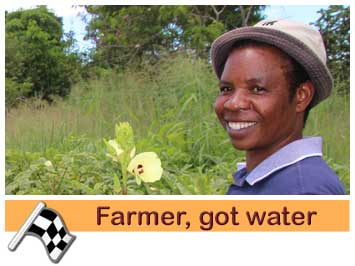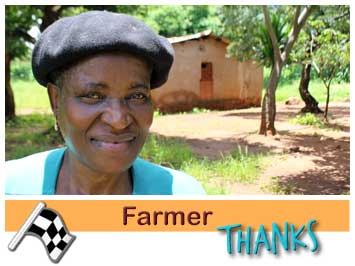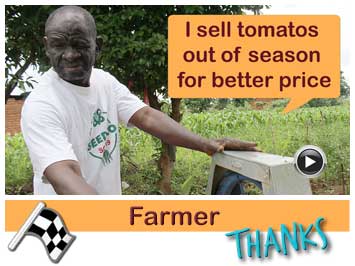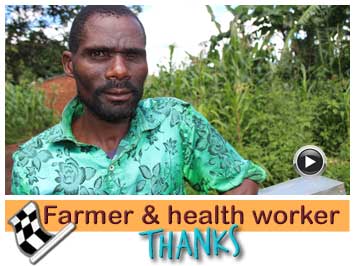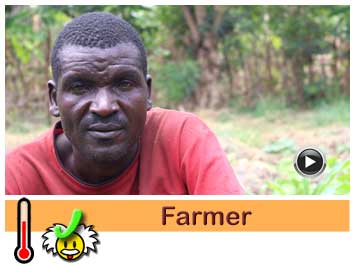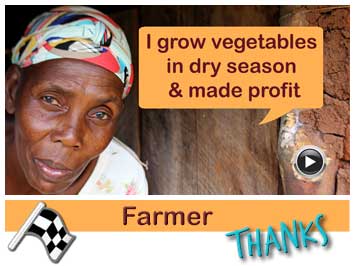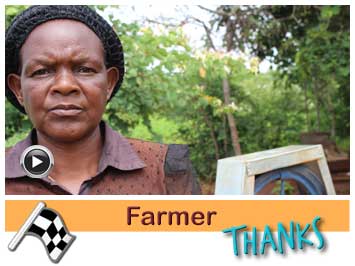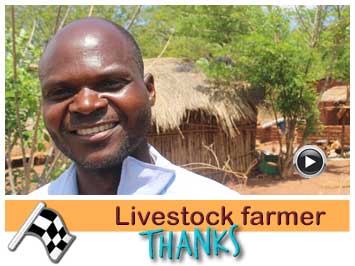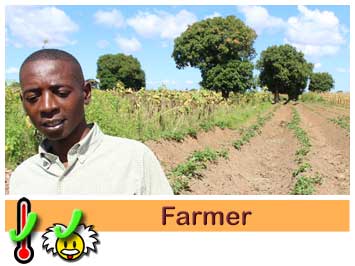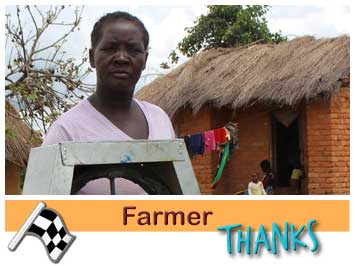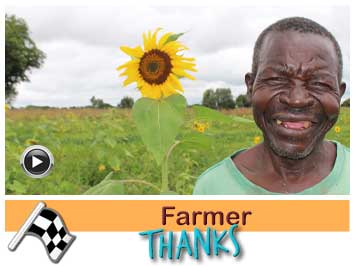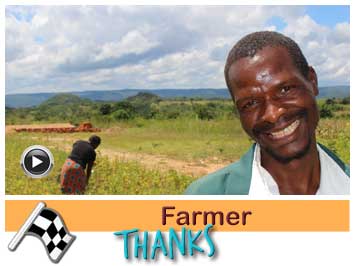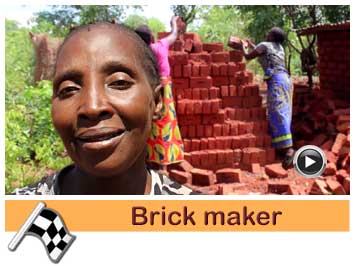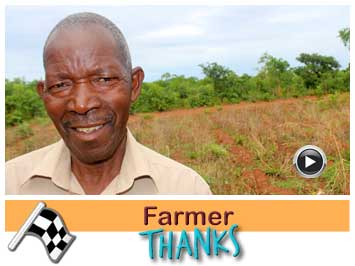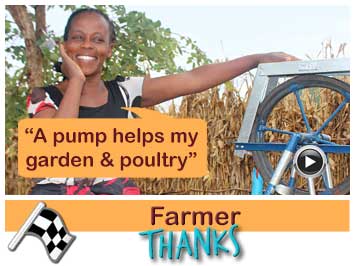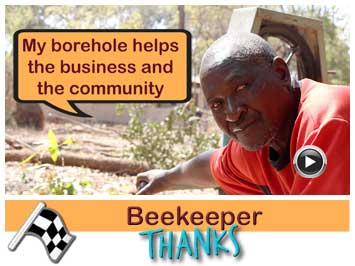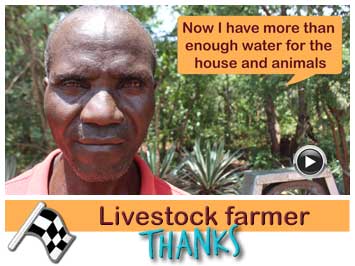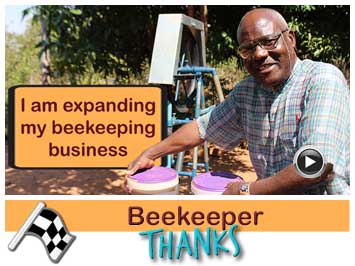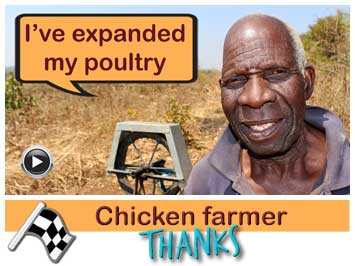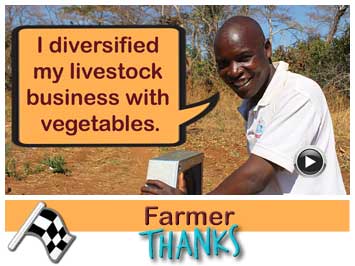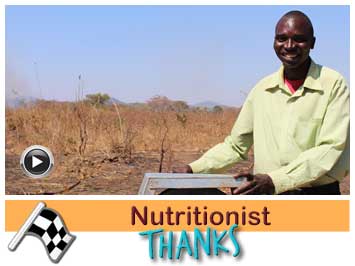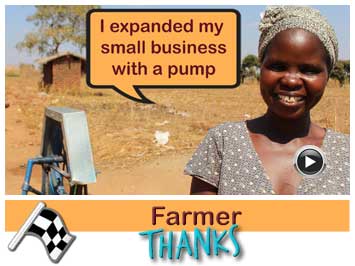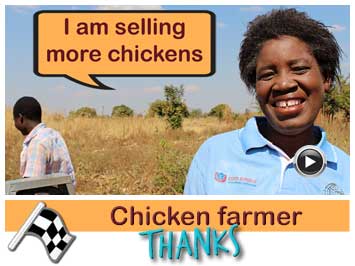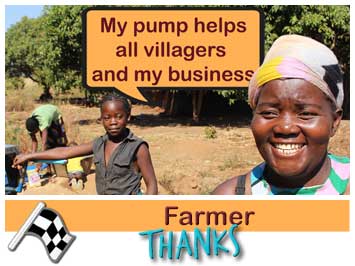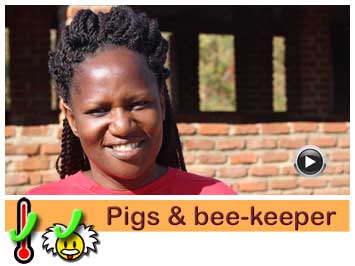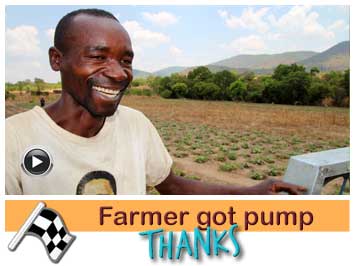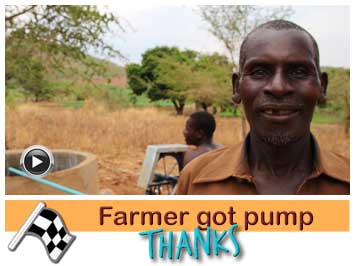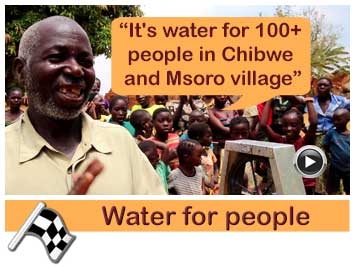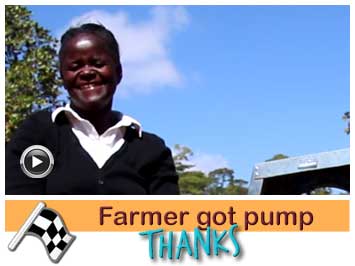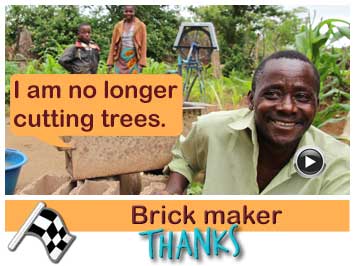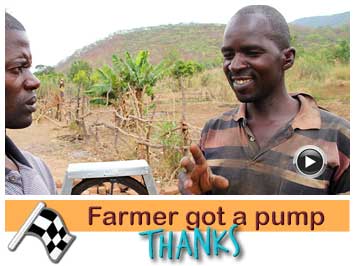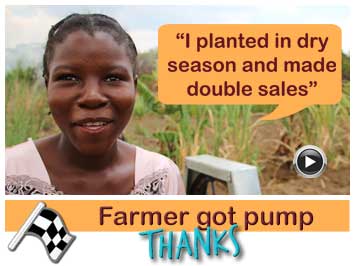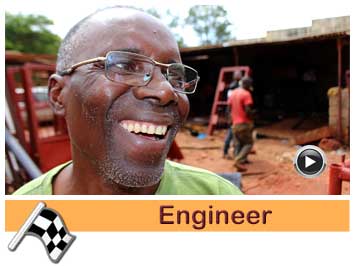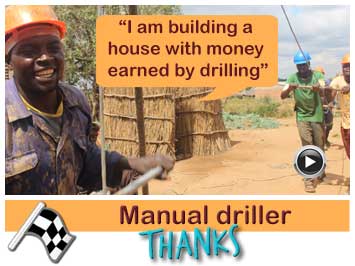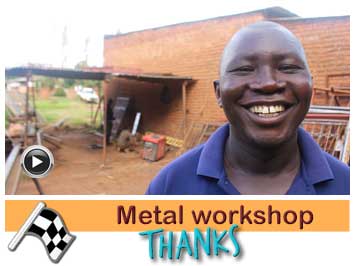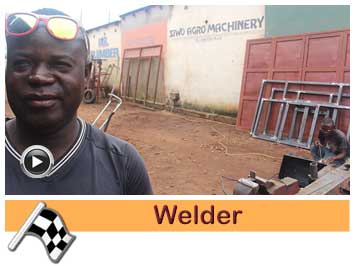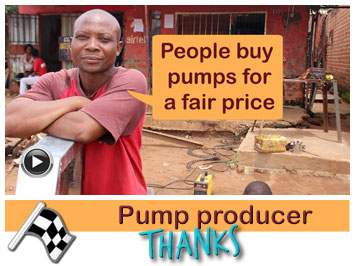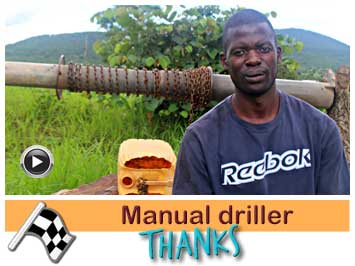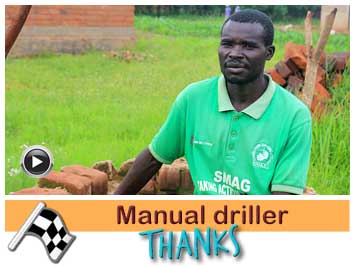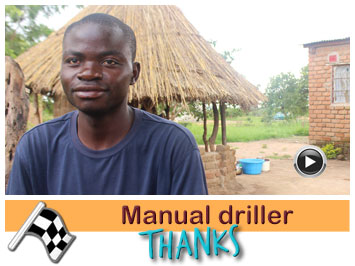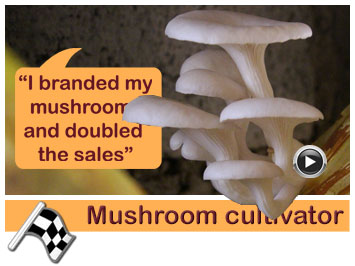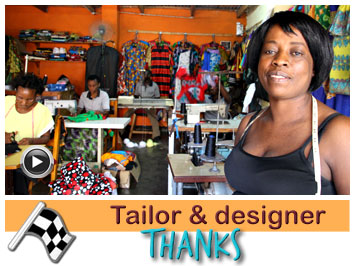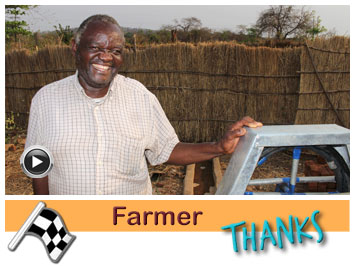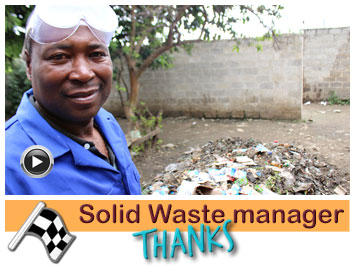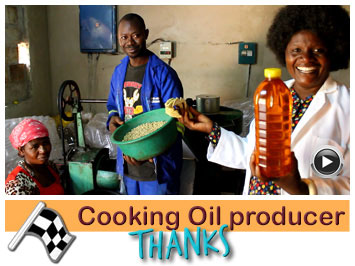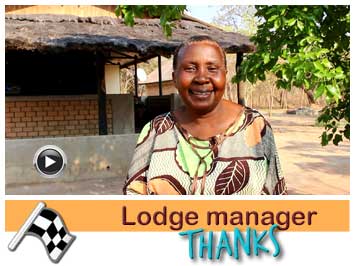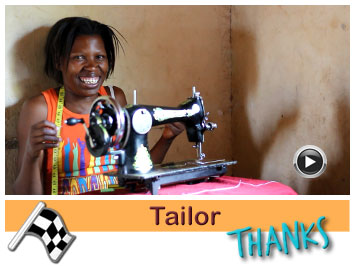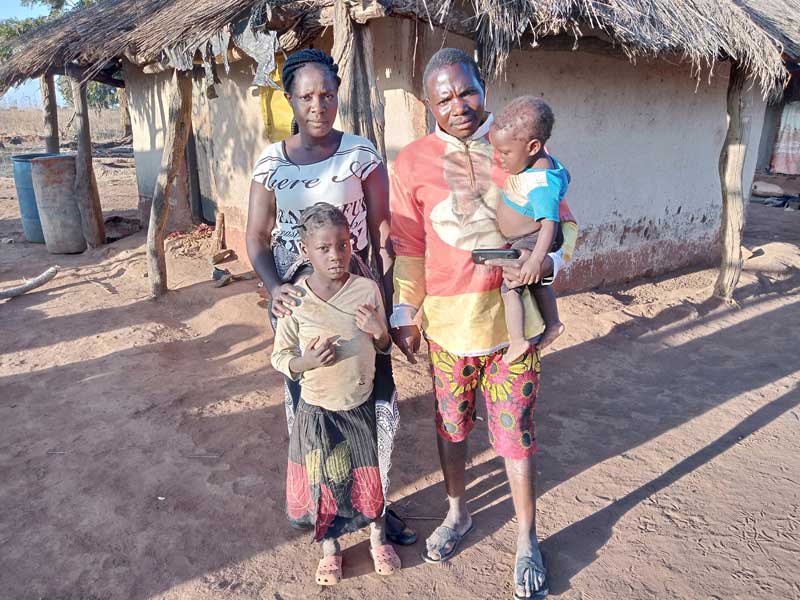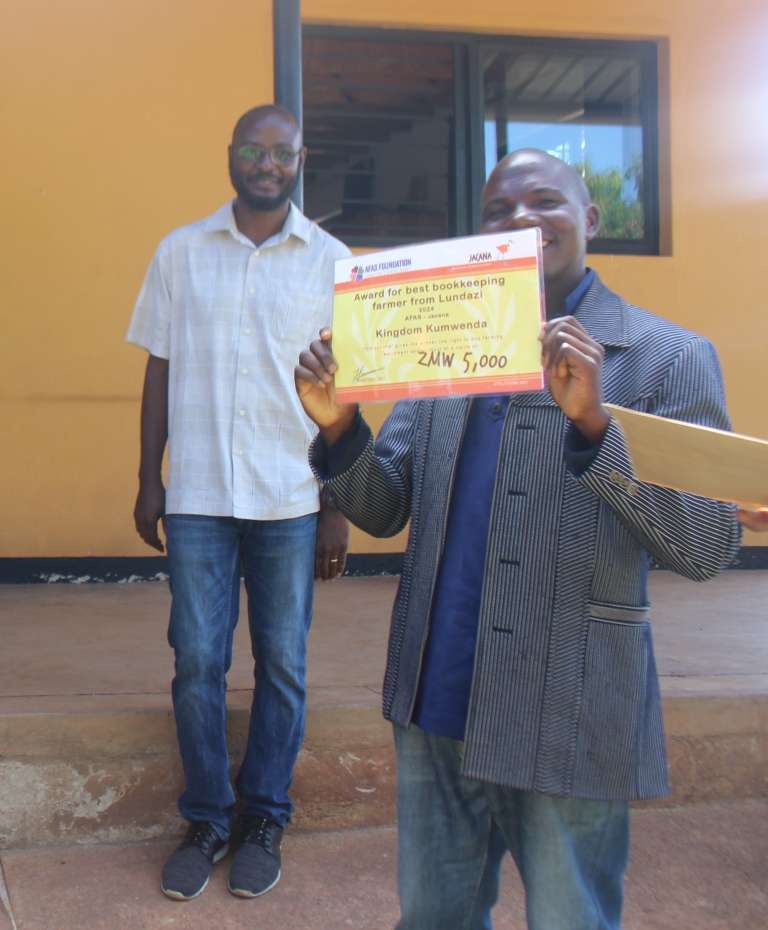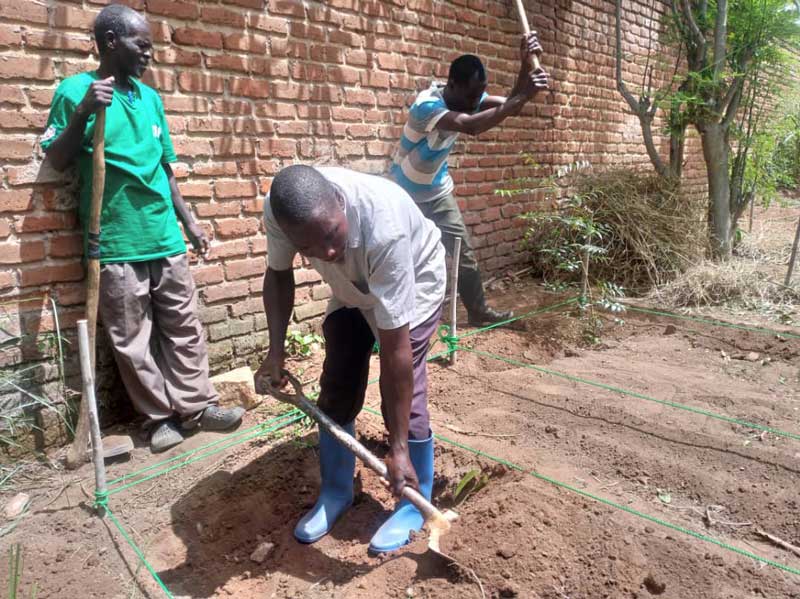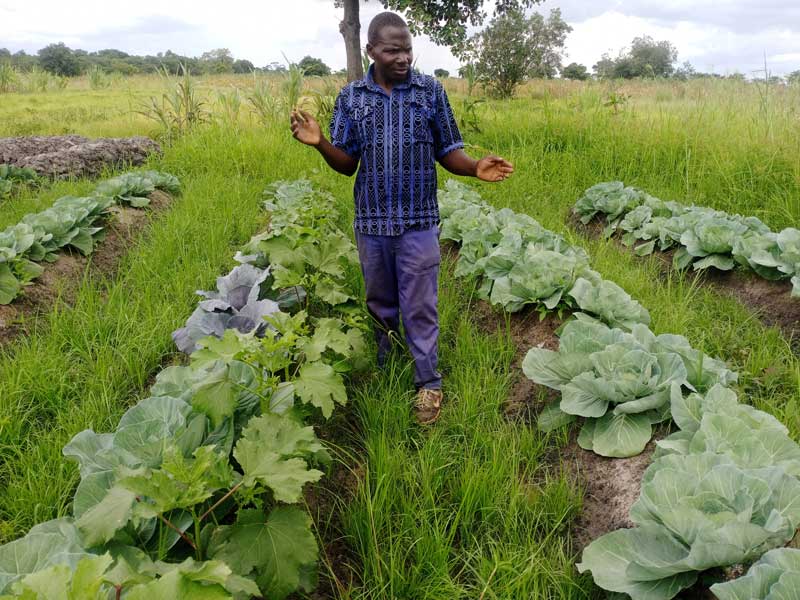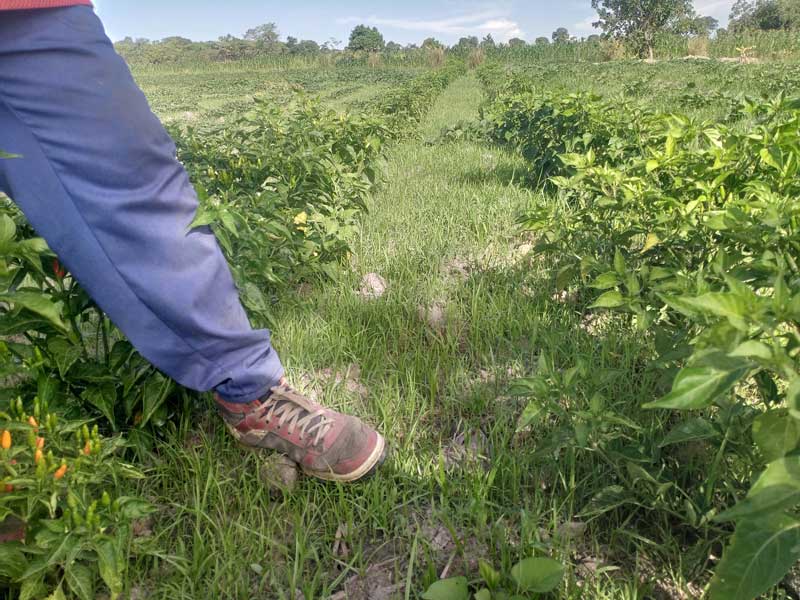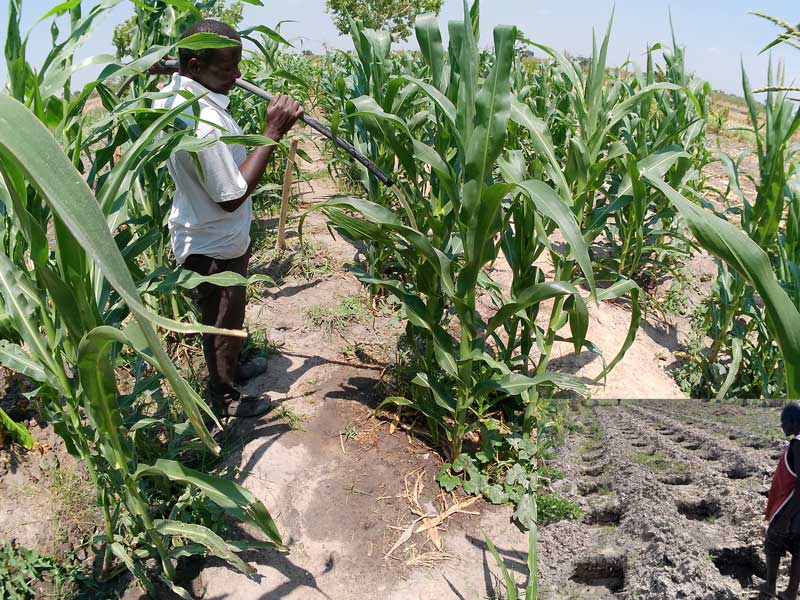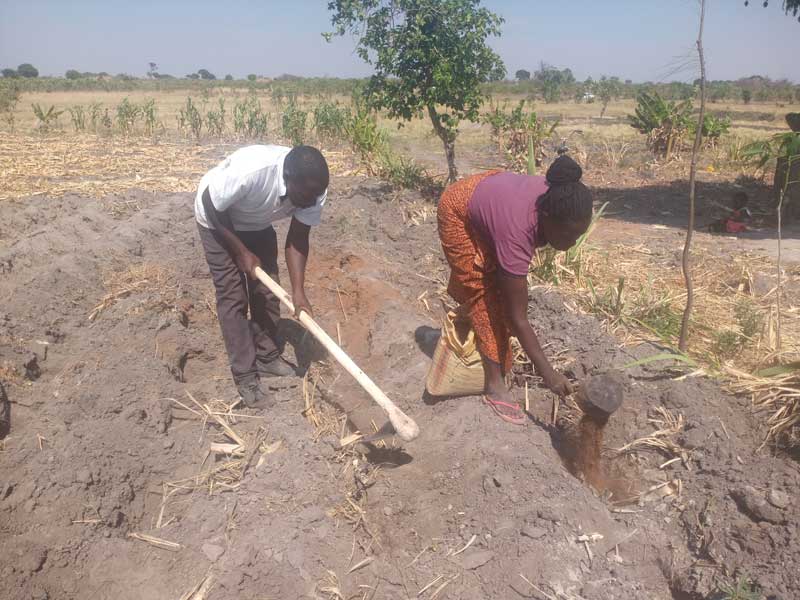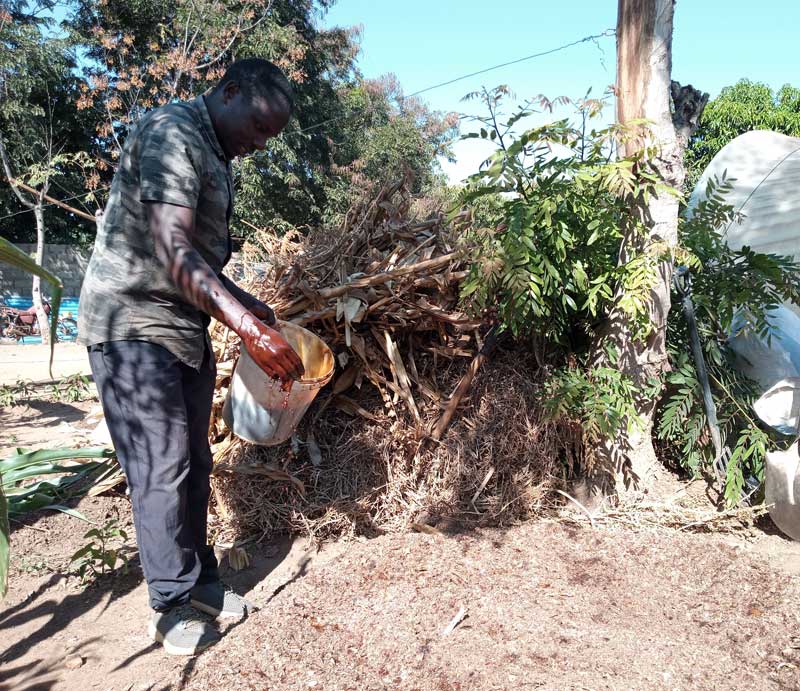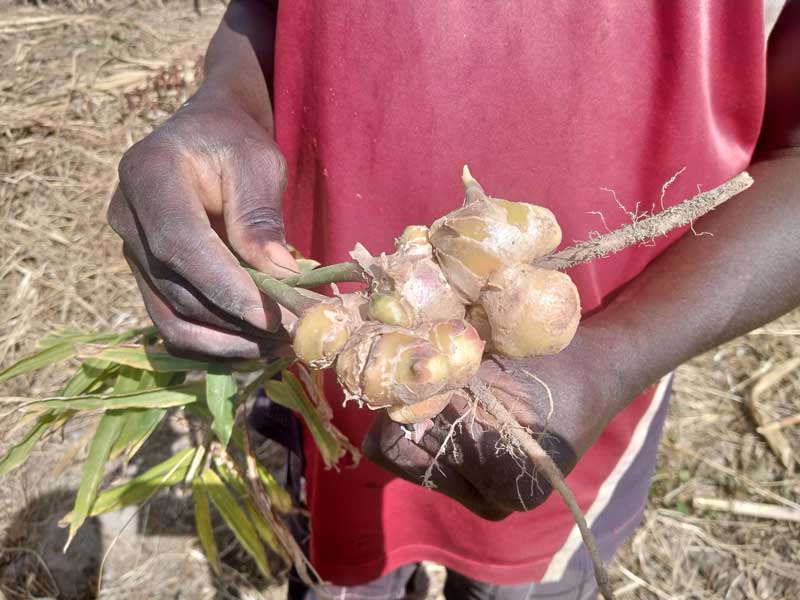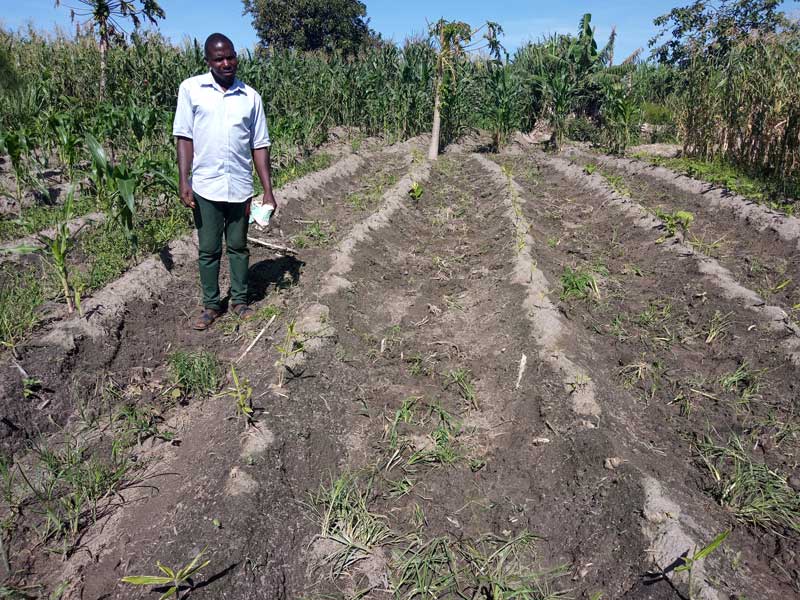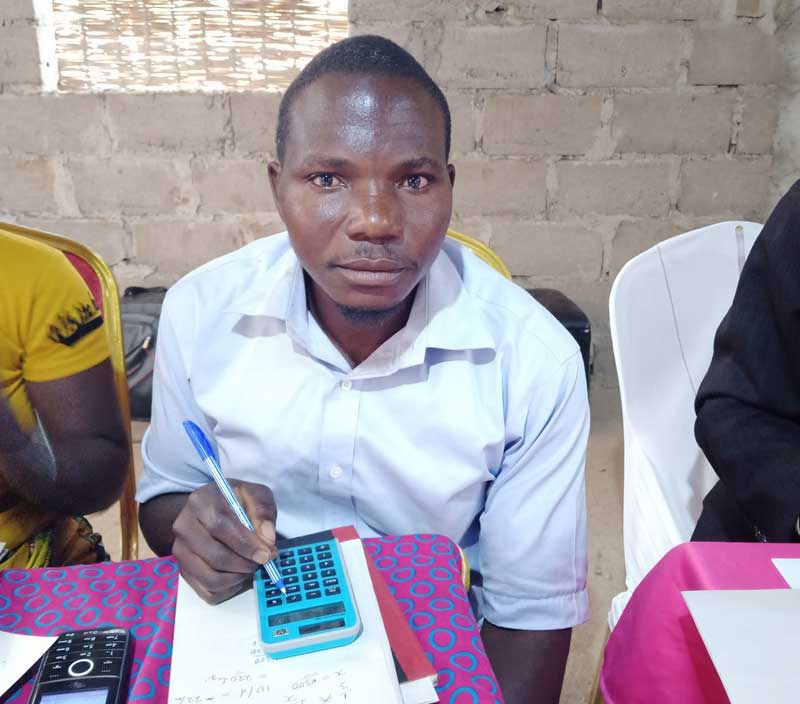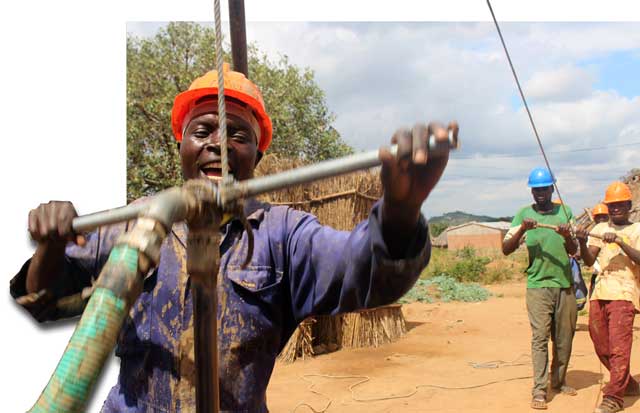Farmer, Kingdom Kumwenda
Having been selected by Jacana to take part in the project ‘’from auto pilot to champion farmer’’, sponsored by AFAS Foundation: Kingdom Kumwenda has already recorded significant growth in his gardening business. Now that he has a solar pump in his garden, partly sponsored by the project; Kingdom can produce vegetables of different kinds all year round. The training in making organic fertilizers has seen Kingdom spending way less on fertilizers; this has translated into better profits and income for his family. He looks forward to receiving more farming skills, support in tools, and guidance, to further expand his gardening business.
Watch Kingdom Kumwenda 1 year after he was partly sponsored with a solar pump by Jacana
Watch Kingdom Kumwenda before he was partly sponsored with a solar pump by Jacana.
About Kingdom Kumwenda
Kingdom Kumwenda is married and has 4 children; 1 boy and 3 girls. Kingdom completed his secondary education, grade 12 from Mumbwa School in the year 2008.
Previously before he started farming, Kingdom Kumwenda worked as a sales person for different companies in Lusaka for over 5 years. He decided to leave the city and come back home to Chasefu in 2019, so he could focus on his passion for farming.
Kingdom’s main occupation is farming, both during the rainy season and dry season; during the rainy season, he grows crops like maize, sunflower, soya beans, and groundnuts. In the garden, he has been growing vegetables like; rape, tomato, common beans and cabbage. He is also growing fruits like bananas, oranges, and papaya. As a source of protein, Kingdom keeps rabbits and village chickens at home.
Donor
Kingdom Kumwenda is supported by AFAS Foundation

Jacana’s role
- Business and financial training,
- A borehole and a solar pump,
- Agro support (partly sponsored agro supplies and inputs) and guidance,
- Bookkeeping guidance.
Provided training
You can also download the manuals for these trainings:
Guidance and monitoring
April 2024
The first ever farmer awards of the ‘’from autopilot farmer to champion’’ project, were slated for the month of April 2024. Prior to the awards day at Jacana head office in Chipata, farmer visits were conducted where each farmer was visited and had to showcase their demo plot to their fellow farmers. The farmer visits did not only present an opportunity for farmers to grade each other as part of the awards procedure, but also was a very important platform for farmers to learn from each other’s gardening experiences. From each Jacana branch; Chipata, Lundazi and Petauke, 2 best farmers in each; bookkeeping and implementation categories had to be selected: In Lundazi, Kingdom Kumwenda scooped the best bookkeeping farmer award.
Here Kingdom kumwenda receives his award: a voucher on agro inputs, for him to improve implementation of garden activities.
March 2024
Sustainable organic agriculture offers a better solution to the many threats and problems that the food system is facing today amidst climate change. In March 2024, Jacana organized and conducted a 4 days training workshop on Sustainable Organic Agriculture at Jacana office in Lundazi. The workshop comprised of 50% theory and 50% practical training. Some subjects covered in the training included: Soil fertility and natural pest and disease management, organic garden layout, and organic vegetable production using permanent fertility beds.
January 2024
Planting a diversity of crops in the garden comes with lots of advantages, improved pest and disease control, synergy between crops and maximum utilization of agriculture spaces. Kingdom was visited and guided on crop management and intercropping practices; here kingdom intercropped cabbage and okra, results from this trial would give him a better understanding on the many intercropping options in the garden.
December 2023
Planting and managing a crop is one aspect of crop production but knowing when and how to harvest a particular crop is one such important skill a farmer should possess. In the month of December Kingdom was guided in the process of harvesting hot pepper, which at the time had just started ripening.
October 2023
Eager to experience how effective Bokashi works, kingdom kumwenda grew a few lines of green maize, sweet potatoes, and chilli sorely using Bokashi fertilizer. He grew his green maize using a deep planting basin. In this method, the basin is 60x60cm wide and 50 cm deep; the basin is filled up with organic fertilizer and, top soil. With some input from Jacana, dry grass, and crop residuals were added in the basin. The addition of grass and crop residuals not only maintains soil fertility but is good for soil moisture retention, hence reducing watering frequency. The deep planting basin can be used, to produce different crops for 2 seasons. Here Kindom Kumwenda irrigates green maize he planted in the deep basins.
July 2023
In July Kingdom Kumwenda made Bokashi organic fertilizer after he was trained. Here Kingdom with his wife is applying Bokashi in the planting basins just before planting seeds.
June 2023
In June Kingdom Kumwenda took part in a 2 days training workshop which Jacana organized, the workshop focused on how to make 4 different types of organic fertilizers, namely; Bokashi, Berkeley, Lab serum and Tea liquid fertilizer.
May 2023
During one of the farmer guidance visits by Jacana, Kingdom test harvested his ginger crop. Despite having a ready customer from Lundazi, who was willing to buy, Kingdom decided to keep the harvested ginger rhizomes for seed multiplication, so he could plant few more lines in the 50×50 demo plot in the next crop cycle
February 2023
Earlier in December of 2022, Kingdom decided to try and grow ginger for the first time. Later in February 2023, he was visited by Jacana and guided on a few tips, like the need for constant weeding and intercropping ginger with other crops that could provide a bit of shed for best performance.
September 2022
Kingdom Kumwenda was among the first group of AFAS project beneficiaries to be trained in business and financial planning. In the 2 days business training workshop, Kingdom learned how to make a business and financial plan, how to find customers; grow his business, keep records and many other topics. By the end of the workshop, Kingdom was able to come up with a business and financial plan for his garden Business.
